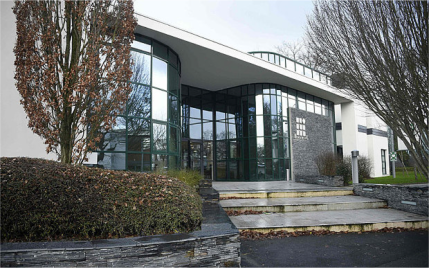There’s no intention here to embarrass anybody, so we’ll keep it incognito. One of the reputable pharmaceutical marketing magazines recently ran an article on the current state of play in how marketing clients ask their advertising agencies to pitch for new business accounts. One page was penned by an ad agency manager and the other by a senior marketer from a big, respectable pharma company.
In the piece, the marketer (no name, no pack drill) wrote:
“Brand teams expect agencies to quickly understand their brands, their market and their challenges – and often this is just from a brief. This doesn’t sound very fair but that’s the reality. We simply have less time and higher expectations”
I do recognise this, from working on the agency side. The reality is worth describing in a bit more depth. When he says “this is just from brief” the reality is that the agency typically receives a three page word document by email, which includes none of the important information. No competitive context. No examples of the prevailing work in the category. No market share or sales data. No understanding of the target market. No smart objectives. No strategy as any strategist would describe it. No brand positioning. No budget. In fact the brief is typically an exercise in box ticking. It may sometimes be accompanied by a background document describing a recent research project – minus the context and purpose. And the quality of research in pharma marketing is a whole other rant, I’m not even going to get started on here.
If there was a GCSE qualification in writing agency briefs, most clients – on the evidence of the last few dozen – would fail.
“Just from a brief”. No face to face meeting. Think about that. I’ve been a client. I want to get to know my agency partners; we’re going to work closely together, I need to share a bond and I need to trust them as people as well as vendors. The idea of selecting agencies to pitch without ever having met them seems to me completely bananas. There may be a telephone Q&A, but this isn’t much help because diaries dictate that it can’t happen until half way through the pitch period, when it’s too late to go back and start again. The first time any of the human beings involved will get to meet is in the theatrical, highly charged and politicised arena of “the big pitch presentation” (which is itself a questionable way to impart their ideas, but that’s another issue).
Typically the agency is required to come back in three weeks with a fully planned out and costed strategic presentation, creative recommendations, channel thinking, personnel assigned and so on.
The pitch may involve taking the team (it’s always important to field the people who will actually work on the business) to a foreign venue for the presentation, at considerable expense, which is never reimbursed, win or lose.
The actual budget for the project is not disclosed – so it’s impossible to know how much it’s sensible for the agency to invest in the pitch, because they can’t know the likely revenue.
And another thing (voice become a little shrill now). After the agencies’ three weeks is up, there’s six weeks allocated for market research to “evaluate” (don’t get me started – that has its own rant all stored up for another time) the ideas.
“Doesn’t seem fair” hardly cuts it – but that isn’t really the point” It’s simply unprofessional. It’s not about fairness, it’s about competence and quality. What really matters is that this kind of pitch process is highly unlikely to generate good ideas, good strategy or good long-term relationships.
But sadly, this process has become the norm. And because the agency market is hugely over crowded and competitive, they will keep quiet and do their best, with little or no complaint.
If the client said “I’m not going to train my people to any level of competence. This doesn’t sound very fair but that’s the reality. We simply have less time and higher expectations” Would that be acceptable?
How about this: “I’m not going to have a coherent strategy and I won’t set any realistic objectives. This doesn’t sound very fair but that’s the reality. We simply have less time and higher expectations”
Ok well how about this one: “I’m not going to put any one person in charge of making decisions. This doesn’t sound very fair but that’s the reality. We simply have less time and higher expectations”.
Hmm, actually all those things might ………stop right there, don’t get distracted.
I’m bound to add that these opinions are not those of my current or former employers. All our clients are simply lovely.
